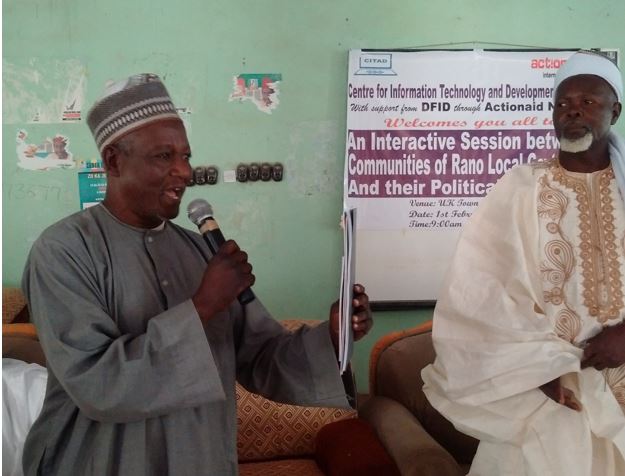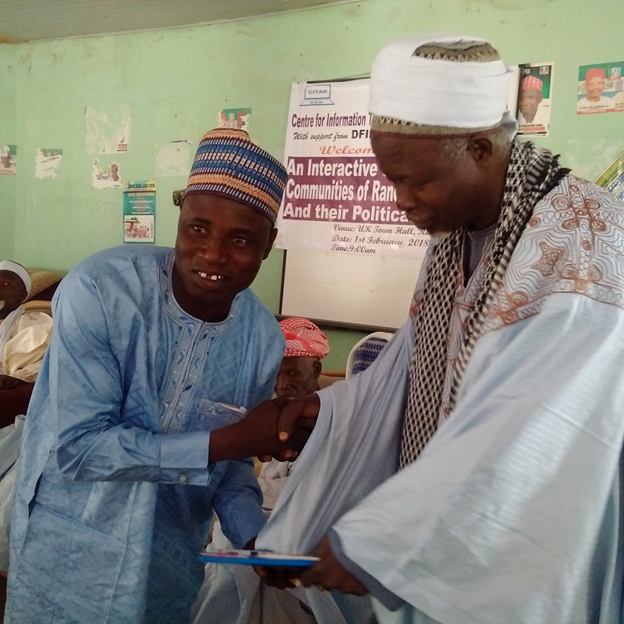
CITAD Facilitates Political Office Aspirants and Electorates Public Discussion
By Hamza Ibrahim.
As local governments election draw nearer in Kano state, the Center for Information Technology and Development (CITAD) has brokered a public discussion between electorates in different Kano communities and their aspiring political figures. The discussion which took place across ActionAid International Nigeria supported project, “Strengthening Citizens Engagement in Electoral Process (SCEEP)†communities brought aspiring chairmen and councilors into face to face deliberation with electorates. February 10th 2018 is set for the local governments election in Kano state, and the electorates need to be reminded on voting in people who will deliver and alleviate their sufferings, hence the need for bringing voters and contestants together. SCEEP project has previously developed “Community Development Charters†for 18 communities across the state, and the charters have carefully highlighted demands, problems, challenges etc of the respective communities, and for the first time, some participants and the aspirants admitted they are talking to themselves not on personal matters but community issues ahead of election, “this is going to be a yardstick upon which we will decide whether or not to vote someoneâ€, emphasized a participant.
Earlier speaking, representative of the Executive Director of CITAD, Malam Ahmad Abdullahi Yakasai summed up the objective of the interactive session to be “a forum where voters see and hear from people who seek their votes in the coming election, so that they decide voting for them and holding them accountable afterwardsâ€. Coordinator of SCEEP project, Malam Isyaku Garba gave an overview of the project and CITAD activities in general urging the participants to prioritize contents of the “Community Development Charters†in their demands from the elective posts contestants.
Three chairmanship aspirants from All Progressive Congress (APC), Peoples Democratic Party (PDP), Green Party of Nigeria (GPN) and numerous councillorship aspirants attended and interacted with the participating male and female voters from Rano local government area of Kano state. Religious and traditional leaders, youths and women groups, students, traders etc were also present. The aspirants spoke and responded to questions and comments after which they were all given copies of the “Community Development Charters†developed by SCEEP project of CITAD, all of them commended the charters describing it as an ease to the tasks ahead of them.




